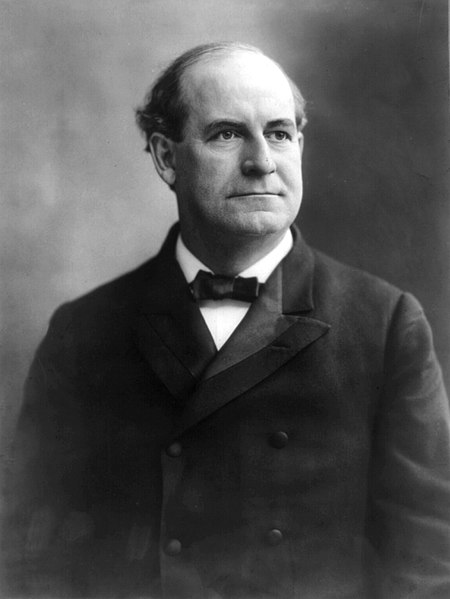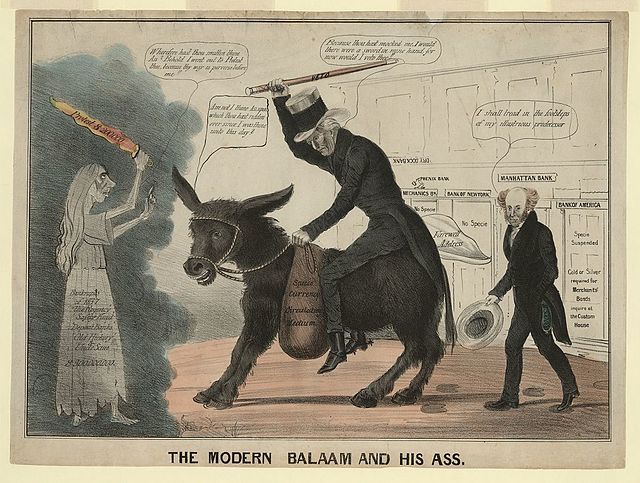William Jennings Bryan was an American lawyer, orator, and politician. Beginning in 1896, he emerged as a dominant force in the Democratic Party, running three times as the party's nominee for President of the United States in the 1896, 1900, and 1908 elections. He served in the House of Representatives from 1891 to 1895 and as the Secretary of State under Woodrow Wilson from 1913 to 1915. Because of his faith in the wisdom of the common people, Bryan was often called "the Great Commoner", and because of his rhetorical power and early fame as the youngest presidential candidate, "the Boy Orator".
Bryan, c. 1908
Bryan's birthplace in Salem, Illinois
Attorney Mary Baird Bryan, the wife of William Jennings Bryan
A young Bryan
History of the Democratic Party (United States)
The Democratic Party is one of the two major political parties of the United States political system and the oldest active political party in the country as well as in the world. The Democratic party was founded in 1828. It is also the oldest active voter-based political party in the world. The party has changed significantly during its nearly two centuries of existence. Once known as the party of the "common man," the early Democratic Party stood for individual rights and state sovereignty, and opposed banks and high tariffs. In the first decades of its existence, from 1832 to the mid-1850s, under Presidents Andrew Jackson, Martin Van Buren, and James K. Polk, the Democrats usually bested the opposition Whig Party by narrow margins.
Andrew Jackson, founder of the Democratic Party and the first president it elected.
An 1837 cartoon depicted Jackson leading a donkey which refused to follow, portraying that Democrats would not be led by the previous president
Martin Van Buren
August Belmont: DNC Chair for 12 years during and after the Civil war








